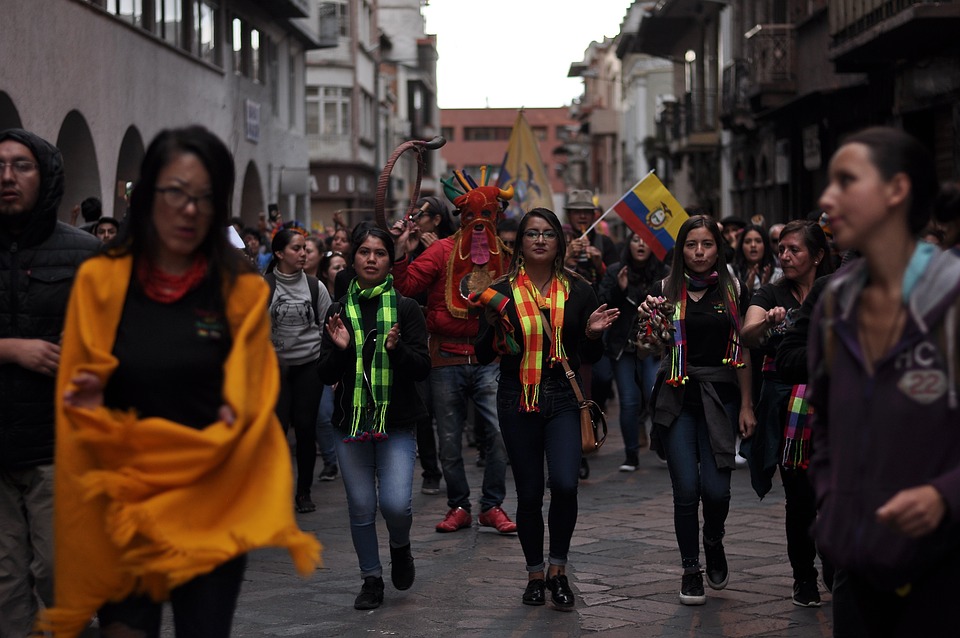Discrimination continues to be present in the lives of young people. On the positive side, they enjoy good education and are aware enough of their British citizenship to be able to benefit from the system._
 Miriam Valero
Miriam Valero
They are the British Latinos, and they identify themselves as such, children of Latin American immigrants, who were born and raised in Britain but have maintained strong cultural connections with their Hispanic roots.
The second generation of Latin Americans in London has found fewer problems than their parents who had to fight and settle in a new country. However, they do not have an easy life either as many of them are still struggling every day because they do not feel completely integrated nor do they see themselves developing in terms of welfare and social life.
For example, it seems that the scourge of cagainst them has not yet disappeared completely, even though they were born here in the UK; two-thirds claim to have suffered abuses at work, have experienced racism during their education, or police harassment.
Like their parents, most of the children of the first Latino immigrants live in the neighbourhoods where their parents had settled, such as Lambeth or Southwark, and they have British citizenship or a dual nationality, mostly British-Colombian, but some are also Spanish.
 Similarly, according to the study No longer invisible: the Latin American Community in London, in its section on immigrant youth sector, the most common profile of the second generation of Latin Americans in the city is that of children that have at least a Latin American mother, or both their parents are from Latin America, and they are usually from Colombia.
Similarly, according to the study No longer invisible: the Latin American Community in London, in its section on immigrant youth sector, the most common profile of the second generation of Latin Americans in the city is that of children that have at least a Latin American mother, or both their parents are from Latin America, and they are usually from Colombia.
Education and the labour market
In the study, some of the young people interviewed reported having suffered racism of some form during their education.
However, most of them have completed higher education studies, and have reached minimum post-secondary study.
Currently, for 21-year-olds, their main economic activity is studying; more than half of the sample surveyed in the study by the Queen Mary University of London and Latin American Women’s Rights Service responded as doing so.
Most of them are bilingual and claim to speak with friends in Spanglish, which they admit is sometimes not beneficial for their English, and since they consequently might not speak it perfectly, it then decreases their chances in other contexts such as labour market access.
 As for their professional future, they are less willing than their parents to fill positions of elementary work.
As for their professional future, they are less willing than their parents to fill positions of elementary work.
However, many of them if they do work, are employed in such positions to help pay for their studies.
Social surrounding and welfare
The second generation of Latin Americans in London remains economically and socially vulnerable as more than half of them receive state benefits or help from their parents. However, this very fact shows how children of immigrants more than their parents demand and fight for their rights as British citizens, this aspect being a positive one in their integration into British society.
As for their well-being, as manifested in their daily lives – for example the standards of accommodation and conditions they live in – have improved in comparison to those of their parents, although some still complain of crowded homes, often shared by several families.
Integration is also an aspect still to be achieved by the second-generation immigrants, especially in relation to their social life; most of them claim to be friends with other British Latinos or interact with people from other communities. Very few claim to only have British friends.
 Discrimination
Discrimination
On the other hand, two thirds of young people interviewed claim to have felt discriminated against.
Some of the testimonies indicate that they are victims of searches and records, for example in the area of Elephant and Castle, in what they claim is the daily reality in a city that associates Latin Americans with drugs. They also mention discrimination as present in their daily lives, the workplace being where they feel it most, but education in the country is also on the list. Although the majority of the second-generation young people interviewed consider themselves British Latinos, most claim they feel more Latin American than British. Leaving aside the distance, most of them maintain ties with their relatives in latin America and have visited them several times throughout their lives.
Another important element that the young people in this study identify is the confusion felt by some of them when it comes to the feeling of belonging to one community or another. However, despite living in the country, some of them express the willingness to return to Latin America.
(Translated BY Sylvia Hoffmann – Email: sylviahoff@gmail.com) – Photos: Pixabay












.jpg)












